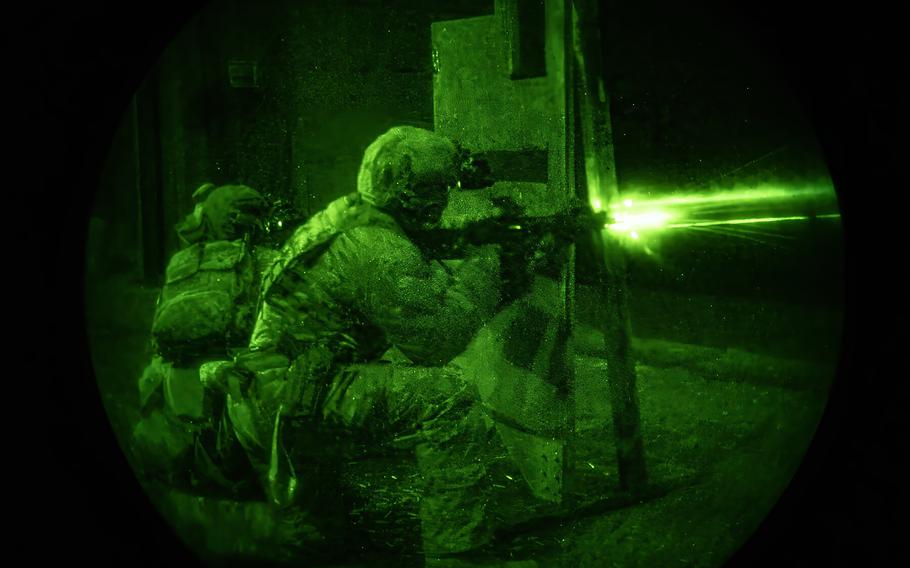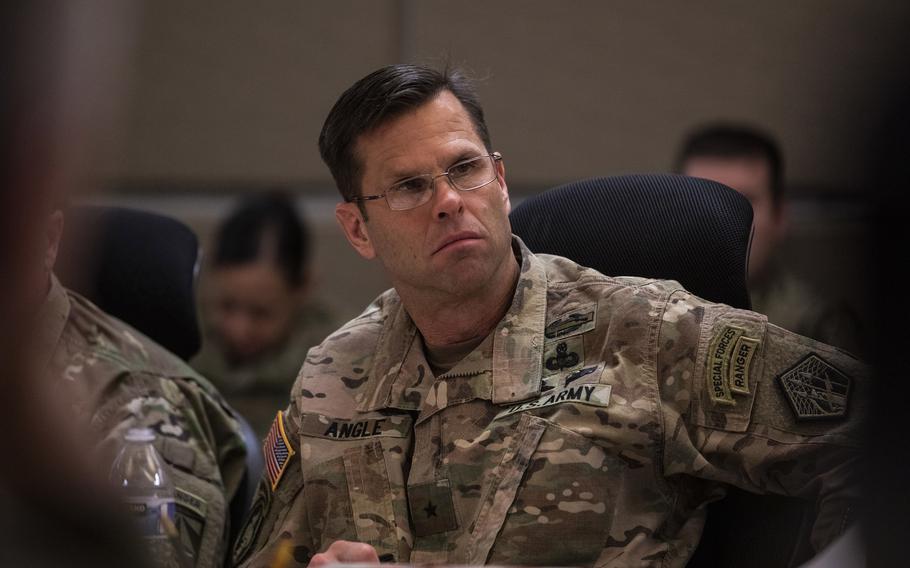
U.S. Special Operations Forces assigned to 10th Special Forces Group (Airborne), participate in a combat marksmanship exercise at Panzer Range, in Boeblingen, Germany, Feb. 15, 2024. A leadership makeover aimed at improving how U.S. special operators work with allies in Europe would change U.S. Special Operations Command Europe into a three-star headquarters with its commander serving in a dual-hatted role as head of NATO’s special operations command. (Michele Wiencek/U.S. Army)
STUTTGART, Germany — A leadership makeover aimed at improving how U.S. special operators work with allies in Europe is in the works, military officials said this week.
The change involves turning the Stuttgart-based U.S. Special Operations Command Europe into a three-star headquarters with its commander serving in a dual role as head of NATO’s special operations command.
The change “will better align SOF operations, activities and investments,” SOCEUR spokesman Lt. Col. Peter Bogart said in a statement Wednesday.
“Furthermore, it ensures a more efficient allocation of resources and personnel, where SOF assets can be rapidly deployed in support of NATO or U.S. missions as needed,” he said.
The move is in line with how other top positions are structured, such as U.S. European Command, whose leader also serves as NATO’s supreme allied commander from an office in Belgium. The heads of the U.S. Army, Navy and Air Force in Europe lead corresponding NATO commands.
Last week, the Pentagon announced that Army Maj. Gen. Richard E. Angle had been nominated for a third star to head up SOCEUR and the Allied Special Operations Forces Command.
If confirmed, he will command from NATO’s military headquarters in Belgium.
Since August, he has served as a special assistant to Gen. Darryl Williams, commander of U.S. Army Europe and Africa and NATO’s Allied Land Command, according to the Army.

Then-Brig. Gen. Richard E. Angle participates in a working lunch during the Joint Warfighting Assessment at Joint Base Lewis-McChord, Wash., in 2019. Now a major general, Angle was nominated for a third star to take up the position of Special Operations Command Europe boss and also head up Allied Special Operations Forces Command, the Pentagon announced last week. (Torrance Saunders/U.S. Army)
Meanwhile, Army Brig. Gen. Joseph Lock, who took over SOCEUR in July, will remain in Stuttgart and serve as Angle’s deputy upon confirmation.
The reorganization for SOCEUR is the latest development for a command that’s been adapting how its forces are positioned in Europe.
SOCEUR is moving some of its operators from Stuttgart to Baumholder, a more rural area with access to larger training grounds. Army officials have said the move, which will add about 1,000 people to the service’s Baumholder garrison, is expected to happen by 2026.